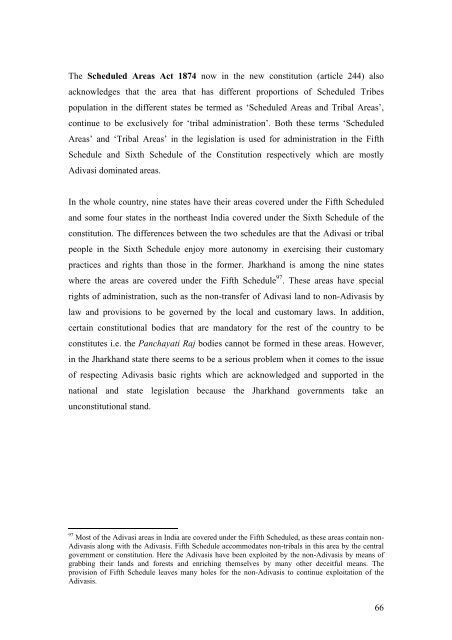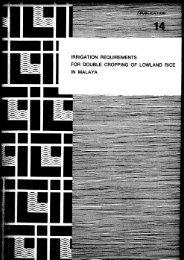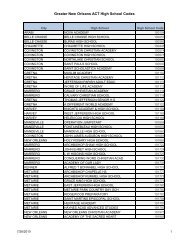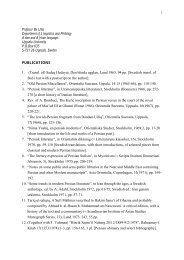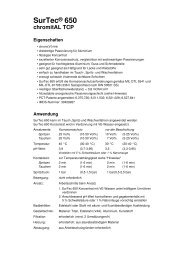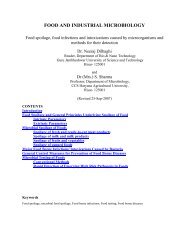On the Future of Indigenous Traditions - Munin
On the Future of Indigenous Traditions - Munin
On the Future of Indigenous Traditions - Munin
Create successful ePaper yourself
Turn your PDF publications into a flip-book with our unique Google optimized e-Paper software.
The Scheduled Areas Act 1874 now in <strong>the</strong> new constitution (article 244) also<br />
acknowledges that <strong>the</strong> area that has different proportions <strong>of</strong> Scheduled Tribes<br />
population in <strong>the</strong> different states be termed as ‘Scheduled Areas and Tribal Areas’,<br />
continue to be exclusively for ‘tribal administration’. Both <strong>the</strong>se terms ‘Scheduled<br />
Areas’ and ‘Tribal Areas’ in <strong>the</strong> legislation is used for administration in <strong>the</strong> Fifth<br />
Schedule and Sixth Schedule <strong>of</strong> <strong>the</strong> Constitution respectively which are mostly<br />
Adivasi dominated areas.<br />
In <strong>the</strong> whole country, nine states have <strong>the</strong>ir areas covered under <strong>the</strong> Fifth Scheduled<br />
and some four states in <strong>the</strong> nor<strong>the</strong>ast India covered under <strong>the</strong> Sixth Schedule <strong>of</strong> <strong>the</strong><br />
constitution. The differences between <strong>the</strong> two schedules are that <strong>the</strong> Adivasi or tribal<br />
people in <strong>the</strong> Sixth Schedule enjoy more autonomy in exercising <strong>the</strong>ir customary<br />
practices and rights than those in <strong>the</strong> former. Jharkhand is among <strong>the</strong> nine states<br />
where <strong>the</strong> areas are covered under <strong>the</strong> Fifth Schedule 97 . These areas have special<br />
rights <strong>of</strong> administration, such as <strong>the</strong> non-transfer <strong>of</strong> Adivasi land to non-Adivasis by<br />
law and provisions to be governed by <strong>the</strong> local and customary laws. In addition,<br />
certain constitutional bodies that are mandatory for <strong>the</strong> rest <strong>of</strong> <strong>the</strong> country to be<br />
constitutes i.e. <strong>the</strong> Panchayati Raj bodies cannot be formed in <strong>the</strong>se areas. However,<br />
in <strong>the</strong> Jharkhand state <strong>the</strong>re seems to be a serious problem when it comes to <strong>the</strong> issue<br />
<strong>of</strong> respecting Adivasis basic rights which are acknowledged and supported in <strong>the</strong><br />
national and state legislation because <strong>the</strong> Jharkhand governments take an<br />
unconstitutional stand.<br />
97 Most <strong>of</strong> <strong>the</strong> Adivasi areas in India are covered under <strong>the</strong> Fifth Scheduled, as <strong>the</strong>se areas contain non-<br />
Adivasis along with <strong>the</strong> Adivasis. Fifth Schedule accommodates non-tribals in this area by <strong>the</strong> central<br />
government or constitution. Here <strong>the</strong> Adivasis have been exploited by <strong>the</strong> non-Adivasis by means <strong>of</strong><br />
grabbing <strong>the</strong>ir lands and forests and enriching <strong>the</strong>mselves by many o<strong>the</strong>r deceitful means. The<br />
provision <strong>of</strong> Fifth Schedule leaves many holes for <strong>the</strong> non-Adivasis to continue exploitation <strong>of</strong> <strong>the</strong><br />
Adivasis.<br />
66


